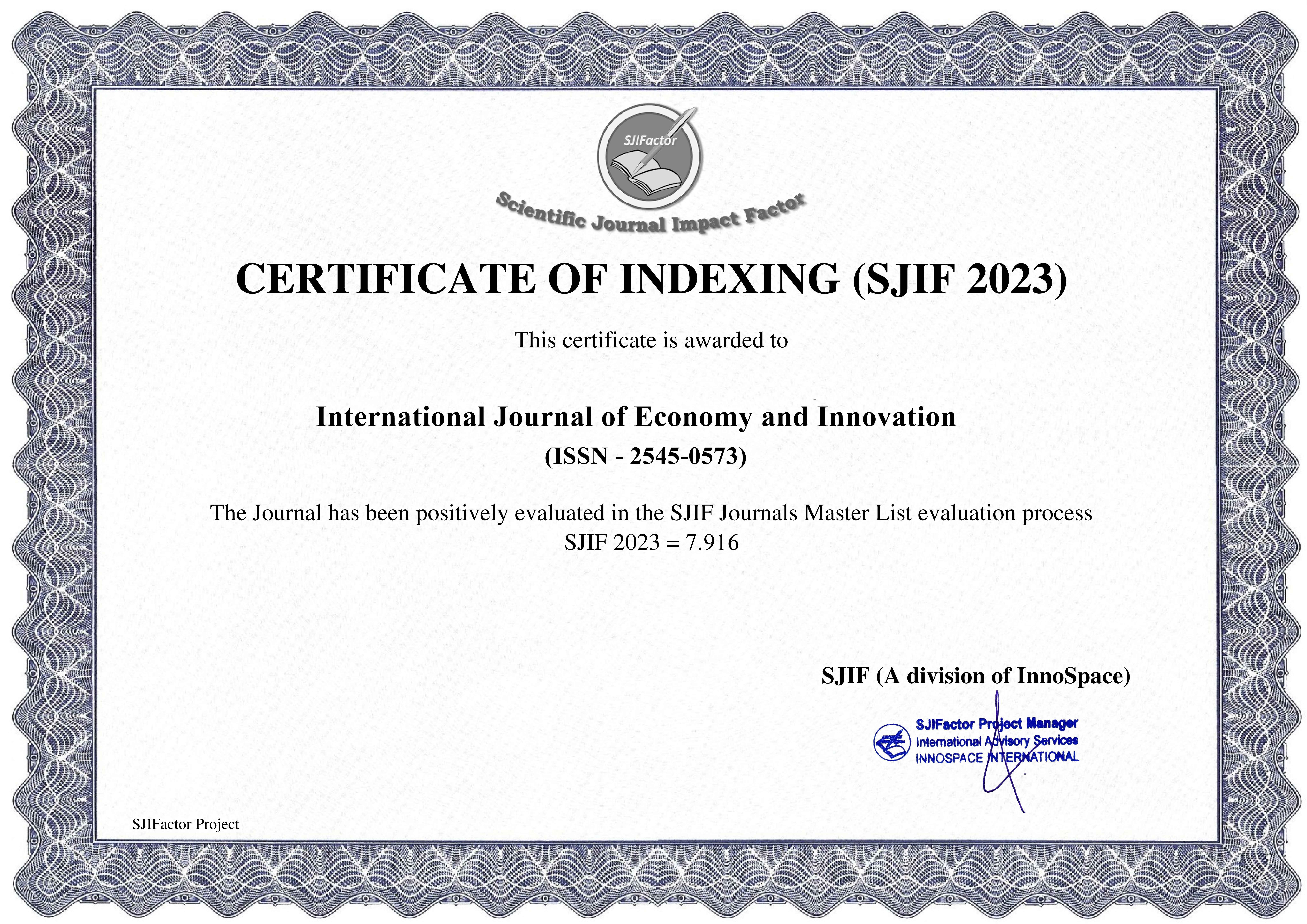MEASURING AND ANALYZING THE EFFECT OF INNOVATION ON ECONOMIC GROWTH: A STUDY OF SELECTED COUNTRIES FOR THE PERIOD (2020-2022)
Keywords:
Innovation Economics, Global Innovation Index, Economic Growth, Economic Competitiveness, Knowledge EconomyAbstract
This research aims to study and analyze the impact of the Global Innovation Index (GII) 2020 on Gross Domestic Product (GDP) [as an indicator to express Economic Growth] for the year 2022 across a selected sample of countries worldwide using Eviews-13 software. The returns indicate that global innovation has a positive and significant effect on the GDP of the sample comprising 78 countries, categorized into three groups based on income: high-income countries, upper-middle-income countries, and lower-middle-income countries. This aligns with the research hypothesis. The impact varied according to the coefficient of determination (R²), explaining 61% of the changes in GDP due to variations in the GII for high-income countries, 44% for upper-middle-income countries, and 32% for lower-middle-income countries. The research also identified a long-term equilibrium relationship between the GII and GDP based on cointegration results. Additionally, there were no issues of autocorrelation or heteroscedasticity at a significance level of 5% for the model variables across all three groups in the sample. The research recommends several suggestions, the most important being the necessity for middle-income and low-income countries (developing nations) to enhance their innovation index in line with improving the components of this index to boost their GDP. Furthermore, developing countries need to rely on a knowledge-based economy grounded in creativity and innovation in the context of global competition, making human development vital for accommodating and advancing all technological innovations.

















